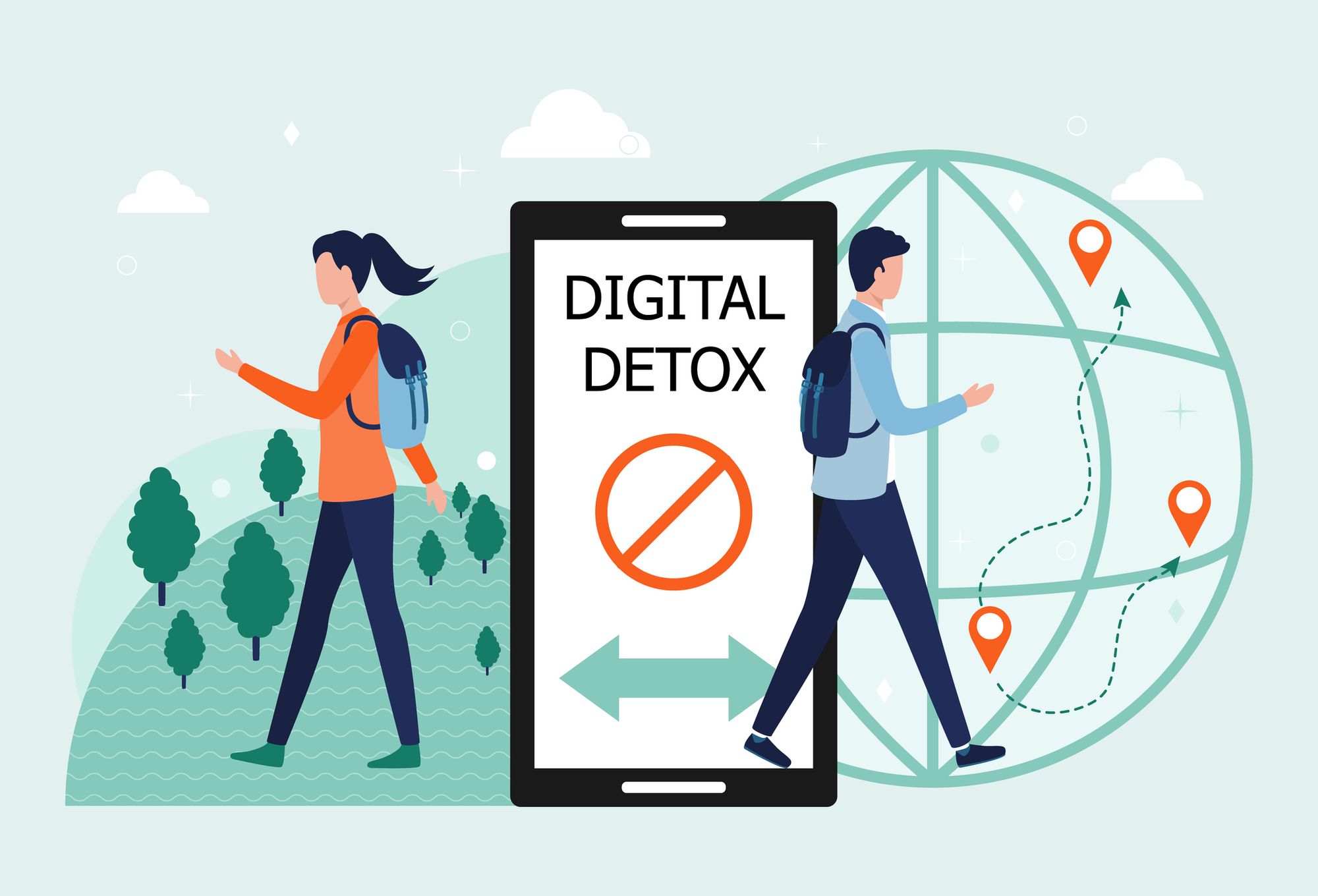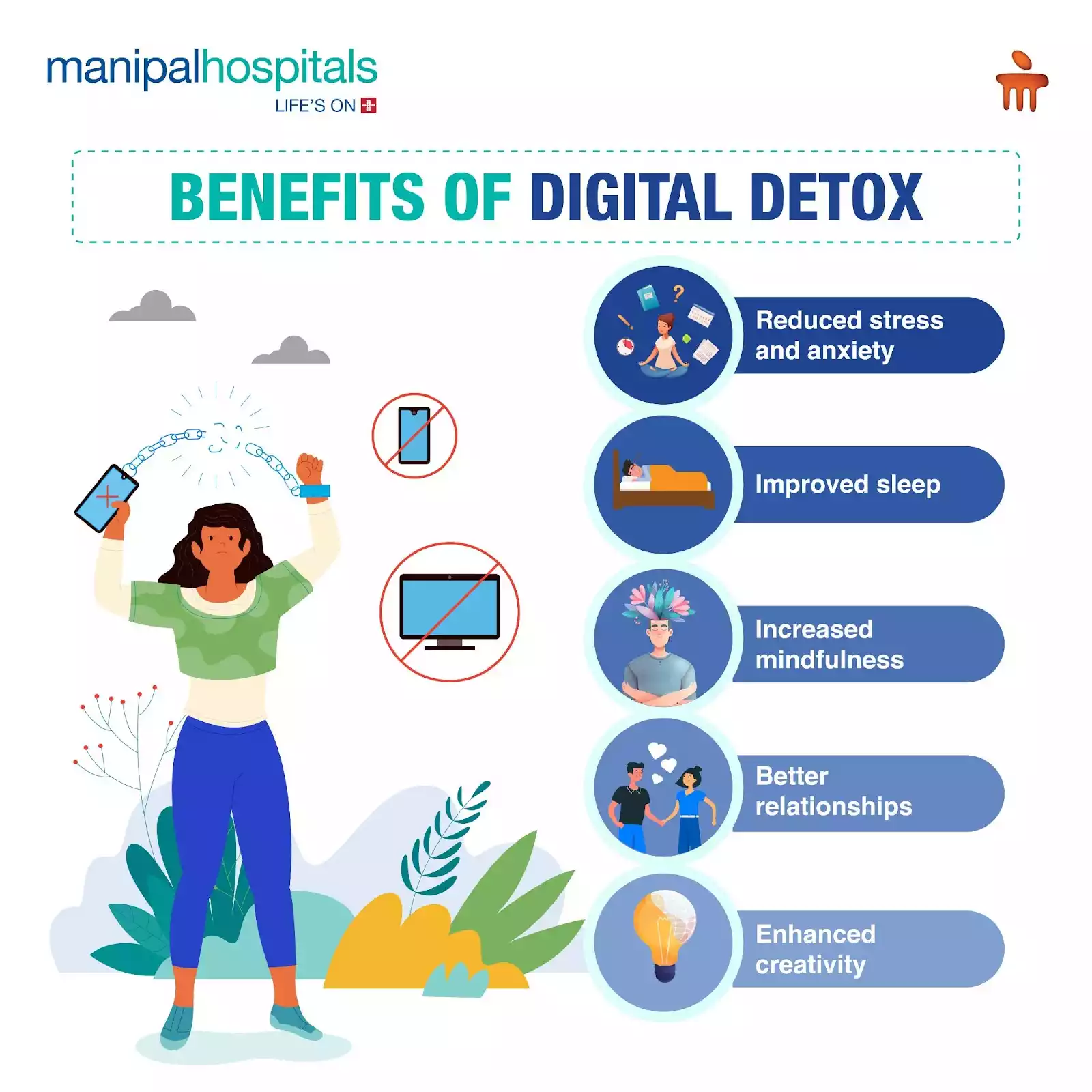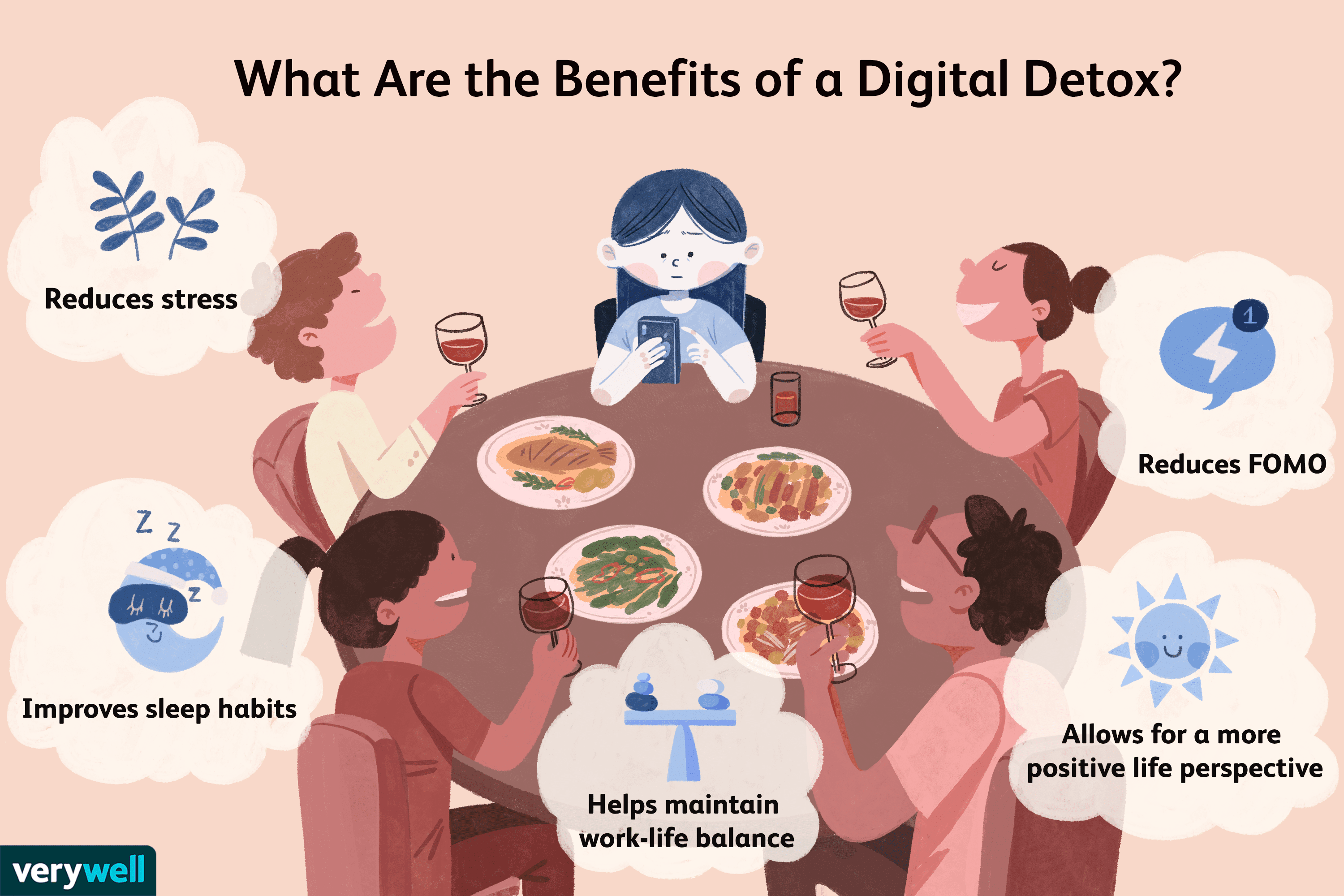What is a Digital Detox? The Ultimate Guide to Reclaiming Your Time and Well-being
In today’s hyper-connected world, digital devices and the internet are ubiquitous. From smartphones to social media platforms, we are constantly engaged with technology. While these tools offer many benefits, excessive use can take a toll on our mental, emotional, and physical health. This is where the concept of a digital detox comes in—an intentional break from all digital devices and online engagement. In this article, we will explore what a digital detox is, why it’s essential, and how you can implement it to improve your well-being.
:max_bytes(150000):strip_icc()/why-and-how-to-do-a-digital-detox-4771321-FINAL-d129381fa4524c5db792951fd9b987d2.png)
What is a Digital Detox?
A digital detox refers to the deliberate act of unplugging from digital devices—such as smartphones, computers, tablets, and social media—for a specific period. It’s a conscious effort to step away from the constant barrage of notifications, messages, and online engagements to focus on real-world interactions and personal well-being.
During a digital detox, individuals typically refrain from:
- Social media (Facebook, Instagram, Twitter, etc.)
- Emails and professional communication
- Television and streaming services
- Video games and online entertainment
The goal is to take a break from the distractions of technology and reconnect with more meaningful, present activities. This could mean spending more time in nature, engaging in face-to-face conversations, practicing mindfulness, or focusing on hobbies.
Why is a Digital Detox Important?
As technology becomes more integral to our daily lives, it’s easy to fall into patterns of overuse. The impact of this constant connectivity can be profound:
1. Mental Health Benefits
Constant exposure to screens and online platforms can lead to increased stress, anxiety, and even depression. The pressure to constantly check emails, social media updates, and news can feel overwhelming. Studies have shown that digital overload can contribute to burnout, sleep disruption, and an inability to focus. A digital detox offers a break, allowing your brain to recharge and reduce stress.
2. Improved Focus and Productivity
Have you ever found yourself losing track of time while scrolling through social media or checking emails? Digital distractions can severely affect your focus and productivity. By detoxing, you can regain the ability to concentrate on tasks, whether it’s work-related or personal hobbies.
3. Enhanced Sleep Quality
Exposure to blue light from screens, especially before bedtime, can interfere with sleep patterns. Engaging in a digital detox, especially in the evenings, can help regulate your sleep schedule, leading to improved rest and better overall health.
4. Better Relationships
Spending too much time on devices can lead to neglect of personal relationships. During a digital detox, you have the opportunity to focus on in-person interactions, strengthening bonds with family and friends.

How to Do a Digital Detox
A digital detox can range from a few hours to a few days or even weeks, depending on how much time you want to commit. Below are several steps to effectively disconnect:
1. Set Clear Goals
Before you begin your detox, define your goals. Are you detoxing to reduce stress, improve focus, or enhance your sleep? Understanding your purpose will help you stay motivated during the detox process.
2. Create a Plan
Decide how long you want your detox to last and what digital tools you’ll disconnect from. You may want to eliminate social media for a week or stop checking emails after work hours. The more specific your plan, the easier it will be to stick to it.
3. Turn Off Notifications
One of the easiest ways to disconnect is by turning off notifications. This will stop the constant interruptions and prevent you from checking your phone for updates automatically.
4. Replace Digital Activities with Offline Hobbies
To fill the time you would typically spend on digital devices, find offline activities that interest you. This could include reading a book, going for a walk, practicing yoga, or learning a new hobby like painting or cooking.
5. Designate Device-Free Zones
Set up device-free zones in your home, such as the bedroom or dining room. This encourages mindful activities and prevents the temptation of reaching for your phone during designated times.
6. Engage in Face-to-Face Interactions
A key aspect of a digital detox is reconnecting with the world around you. Spend quality time with family, friends, or coworkers face-to-face. This interaction fosters deeper emotional connections.
7. Gradually Reintroduce Digital Tools
After your detox, reintroduce digital tools slowly. Instead of jumping back into the same patterns of overuse, aim for a balanced approach. Set limits for how much time you spend on screens and make intentional choices about your digital consumption.

The Benefits of a Digital Detox
When done correctly, a digital detox offers numerous benefits, including:
1. Restored Mental Clarity
Without the constant stream of digital distractions, you’ll notice improved mental clarity and the ability to think more clearly. This allows for better decision-making and less stress.
2. Improved Relationships
A break from screens gives you the time and space to focus on your relationships with loved ones. It allows you to be present, listen actively, and engage in meaningful conversations.
3. Reconnected with Nature
When you take a break from technology, you often spend more time outdoors. Whether it’s hiking, gardening, or simply walking in the park, time in nature can rejuvenate your mind and body.
4. Increased Productivity
With fewer distractions, you can focus more intently on the task at hand. This leads to better time management and increased productivity, whether at work or in personal projects.
5. Enhanced Emotional Health
A digital detox helps you reconnect with yourself, reduce stress, and gain a fresh perspective on life. This can lead to a greater sense of contentment, emotional stability, and self-awareness.

Common Challenges of a Digital Detox
While a digital detox can be incredibly rewarding, it’s not always easy. Here are some challenges you might face and how to overcome them:
1. FOMO (Fear of Missing Out)
One of the main challenges is the fear of missing out on social events, news, or important work updates. To combat this, remind yourself that taking a break from technology will give you the mental space to recharge. You can always catch up on what you missed after your detox.
2. Work Commitments
For many people, staying connected to work is non-negotiable. If you need to stay available, consider setting boundaries, such as checking emails only at certain times of day or using “out-of-office” responses to manage expectations.
3. Addiction to Social Media
Social media addiction is real and can make it challenging to disconnect. Consider using apps that help limit your screen time or block access to certain platforms during your detox.
4. Restlessness
At first, you may feel restless or bored without your devices. This is normal, but it’s an opportunity to try new activities, explore hobbies, or focus on personal growth.
FAQs About Digital Detox
Q1: How long should I do a digital detox?
A1: The length of your digital detox depends on your personal goals and schedule. It can range from a few hours to a few weeks. Start small and gradually increase the duration if you find it helpful.
Q2: Can I do a digital detox while still using my phone for essential tasks?
A2: Yes, you can adjust your detox to your needs. For example, you can avoid social media but still use your phone for calls and texting. The key is to eliminate unnecessary digital distractions.
Q3: Will a digital detox help me sleep better?
A3: Yes! Reducing screen time, particularly before bed, can help regulate your sleep cycle. The blue light emitted by screens interferes with melatonin production, making it harder to fall asleep.
Q4: How often should I do a digital detox?
A4: It’s a good idea to incorporate a digital detox regularly, such as once a week or once a month. However, even taking occasional breaks from screens can provide significant benefits.
Conclusion
A digital detox is more than just a break from technology—it’s a conscious effort to reclaim your time, mental health, and overall well-being. In a world where digital distractions can overwhelm us, taking the time to unplug can help us reconnect with ourselves, improve our relationships, and restore our focus. Whether it’s a few hours or several days, the benefits of a digital detox are immense and can lead to a more fulfilling, balanced life.
For more information on the importance of mental health and well-being, visit Verywell Mind.

